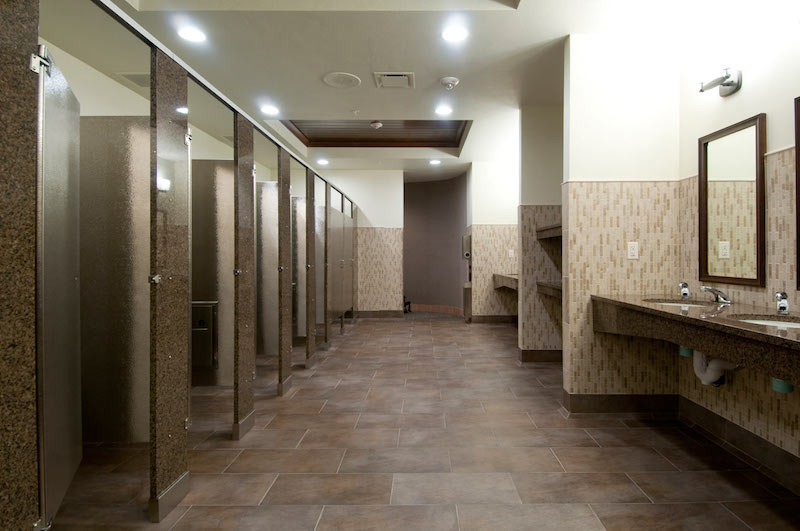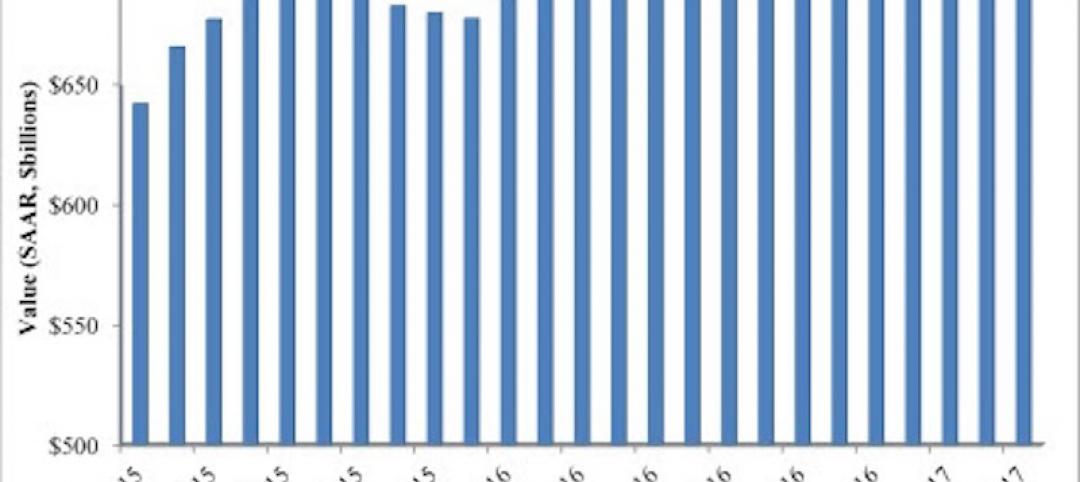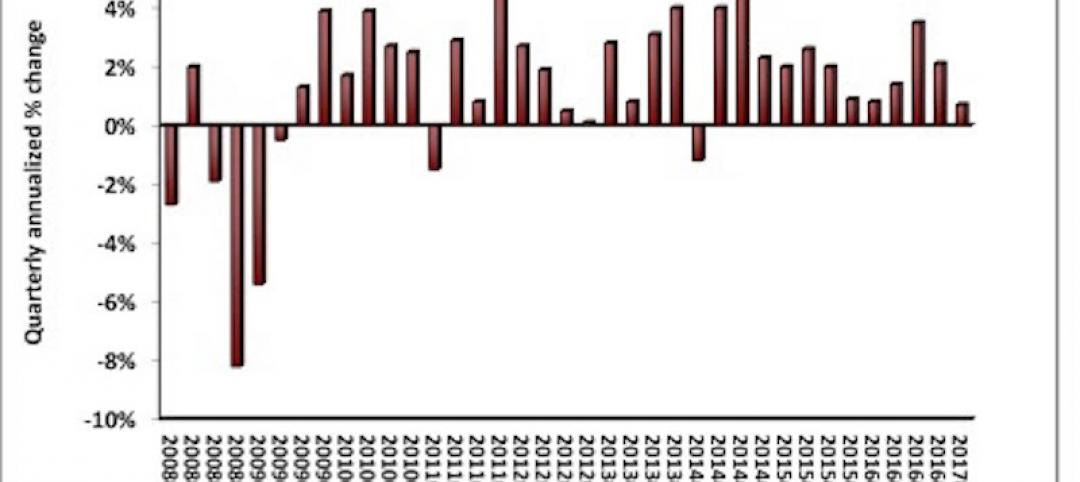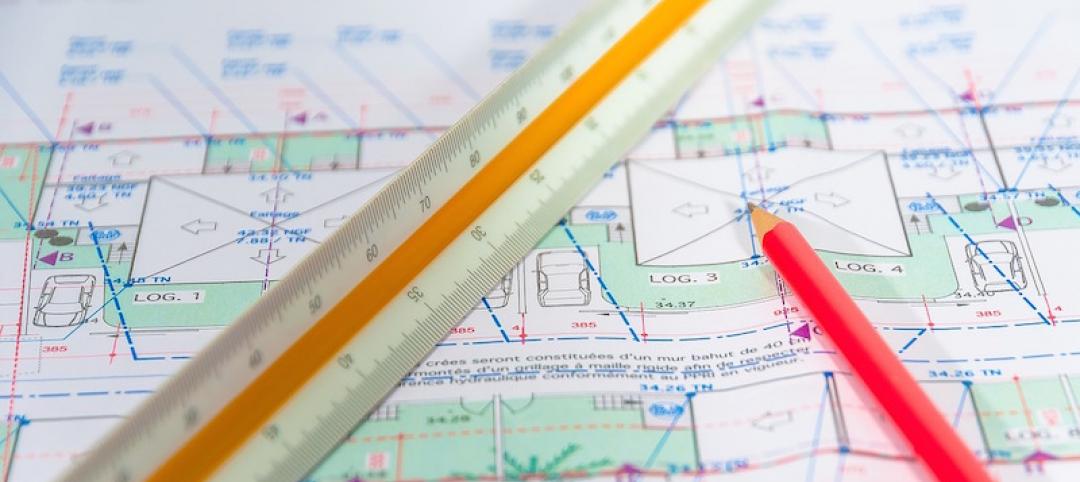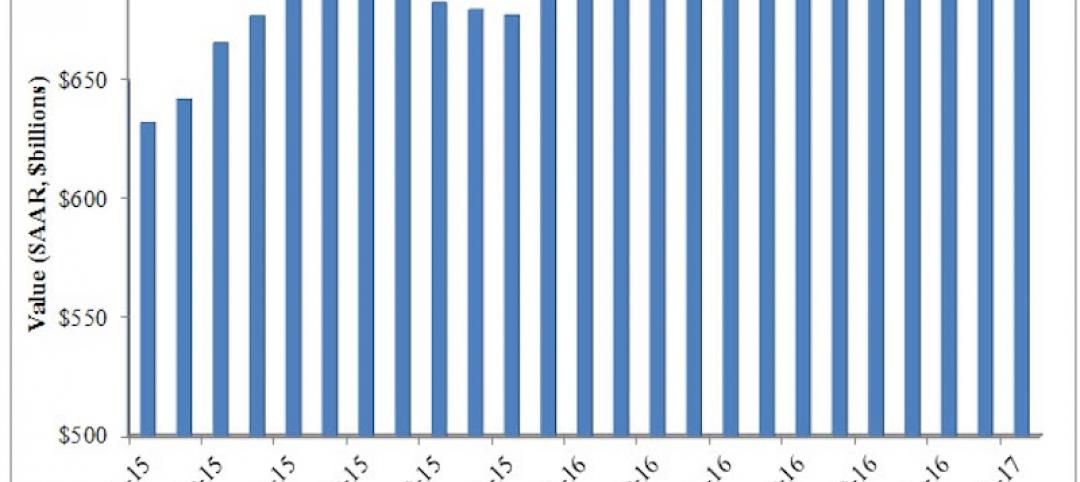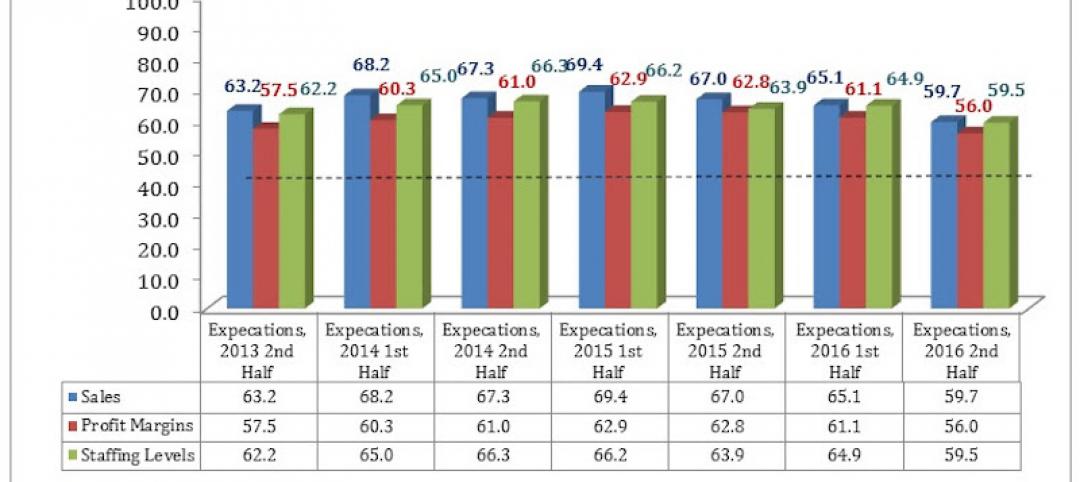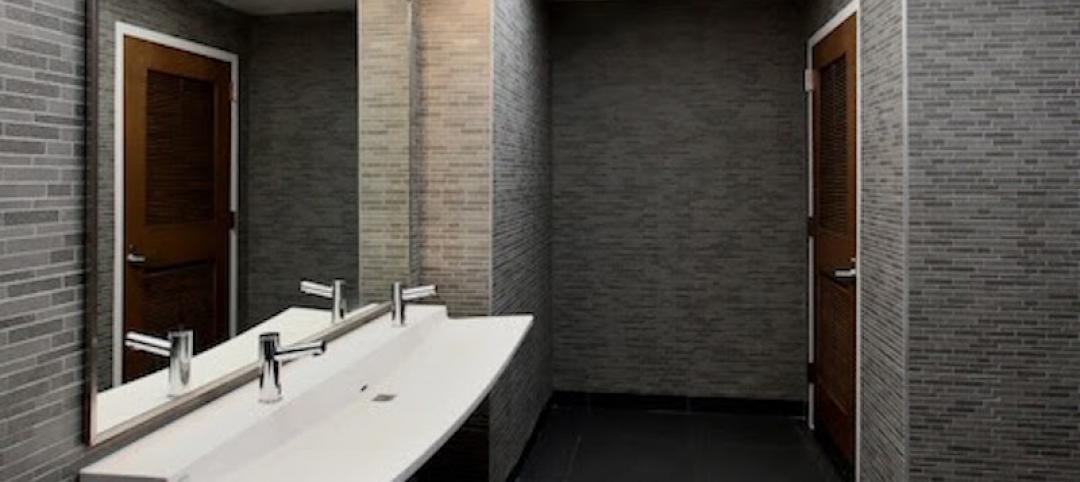According to a survey that tracks Americans’ attitudes toward restroom facilities, almost 70% report that they’ve had a particularly unpleasant experience in a public restroom due to the condition of the facilities—a nearly 20% increase since 2012.
That’s bad news for businesses, since Americans say they judge establishments based on the state of their restrooms. According to the 2016 Healthy Hand Washing Survey, conducted by Bradley Corporation, most consumers believe a bad restroom indicates poor management, lowers their opinion of the company, shows the business doesn’t care about customers, and makes them think the company is lazy or sloppy.
Bradley also delved into what factors makes restrooms so unappealing. Chief restroom grievances include toilets that are clogged or not flushed; a really bad smell; an overall appearance that’s dirty, unkempt, or old; and partition doors that don’t latch closed.
Key restroom improvements Americans would most like to see include improved cleanliness, a completely touchless experience, better stocking of restroom supplies, and a never-ending supply of paper towels—even if there are dryers.
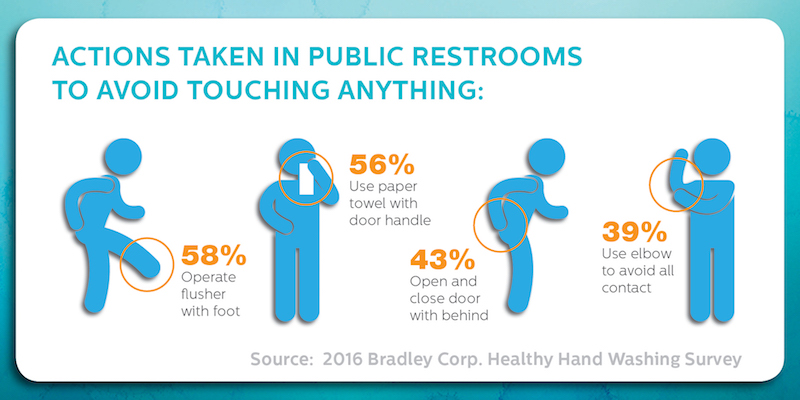 Inforgraphic: Bradley Corporation
Inforgraphic: Bradley Corporation
As for restroom improvements they’ve seen over the past two to three years in specific types of facilities, respondents gave the highest marks to medical buildings, airports, restaurants, and higher education facilities. At the other end of the spectrum, restrooms in convenience stores, gas stations, and truck stops deteriorated the most.
Americans make no secret about their disdain for coming into contact with germs in public restrooms. Restroom entrance door handles, stall handles, and faucet handles are the surfaces that make them the most squeamish. Almost 60% of respondents say they operate the toilet flusher with their foot to avoid germs. More than half use a paper towel to cover the door handle, while others use their back side to open and close doors.
The Healthy Hand Washing Survey queried 1,062 American adults online December 10-13, 2015, about their handwashing habits in public restrooms and concerns about germs, colds, and the flu. Participants were from around the country, were 18 years and older, and were fairly evenly split between men and women (47% and 53%).
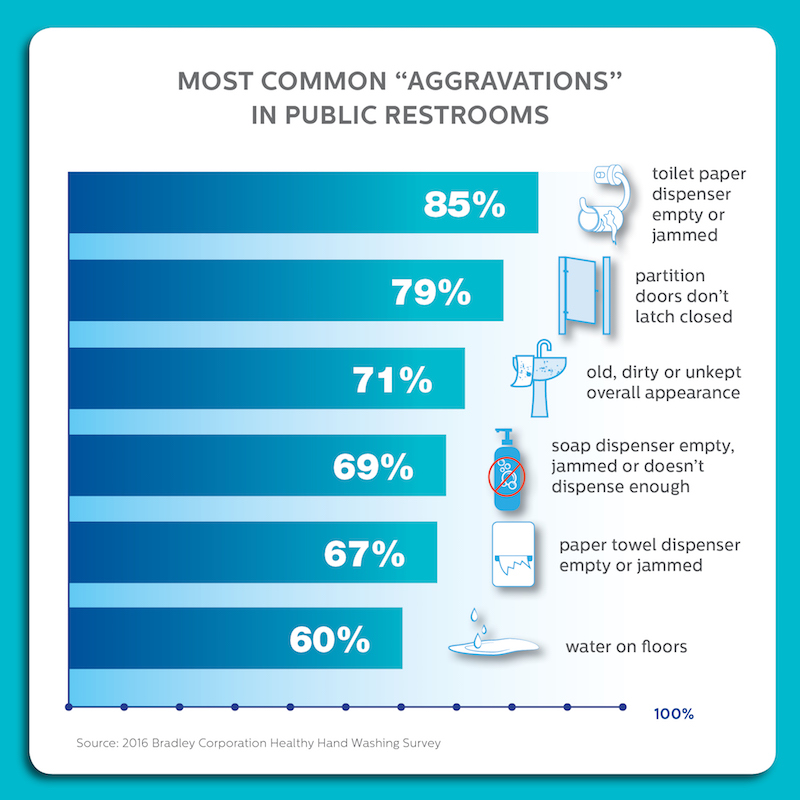 Inforgraphic: Bradley Corporation
Inforgraphic: Bradley Corporation
Related Stories
Market Data | May 2, 2017
Nonresidential Spending loses steam after strong start to year
Spending in the segment totaled $708.6 billion on a seasonally adjusted, annualized basis.
Market Data | May 1, 2017
Nonresidential Fixed Investment surges despite sluggish economic in first quarter
Real gross domestic product (GDP) expanded 0.7 percent on a seasonally adjusted annualized rate during the first three months of the year.
Industry Research | Apr 28, 2017
A/E Industry lacks planning, but still spending large on hiring
The average 200-person A/E Firm is spending $200,000 on hiring, and not budgeting at all.
Architects | Apr 27, 2017
Number of U.S. architects holds steady, while professional mobility increases
New data from NCARB reveals that while the number of architects remains consistent, practitioners are looking to get licensed in multiple states.
Market Data | Apr 6, 2017
Architecture marketing: 5 tools to measure success
We’ve identified five architecture marketing tools that will help your firm evaluate if it’s on the track to more leads, higher growth, and broader brand visibility.
Market Data | Apr 3, 2017
Public nonresidential construction spending rebounds; overall spending unchanged in February
The segment totaled $701.9 billion on a seasonally adjusted annualized rate for the month, marking the seventh consecutive month in which nonresidential spending sat above the $700 billion threshold.
Market Data | Mar 29, 2017
Contractor confidence ends 2016 down but still in positive territory
Although all three diffusion indices in the survey fell by more than five points they remain well above the threshold of 50, which signals that construction activity will continue to be one of the few significant drivers of economic growth.
Industry Research | Mar 24, 2017
The business costs and benefits of restroom maintenance
Businesses that have pleasant, well-maintained restrooms can turn into customer magnets.
Industry Research | Mar 22, 2017
Progress on addressing US infrastructure gap likely to be slow despite calls to action
Due to a lack of bipartisan agreement over funding mechanisms, as well as regulatory hurdles and practical constraints, Moody’s expects additional spending to be modest in 2017 and 2018.
Industry Research | Mar 21, 2017
Staff recruitment and retention is main concern among respondents of State of Senior Living 2017 survey
The survey asks respondents to share their expertise and insights on Baby Boomer expectations, healthcare reform, staff recruitment and retention, for-profit competitive growth, and the needs of middle-income residents.


